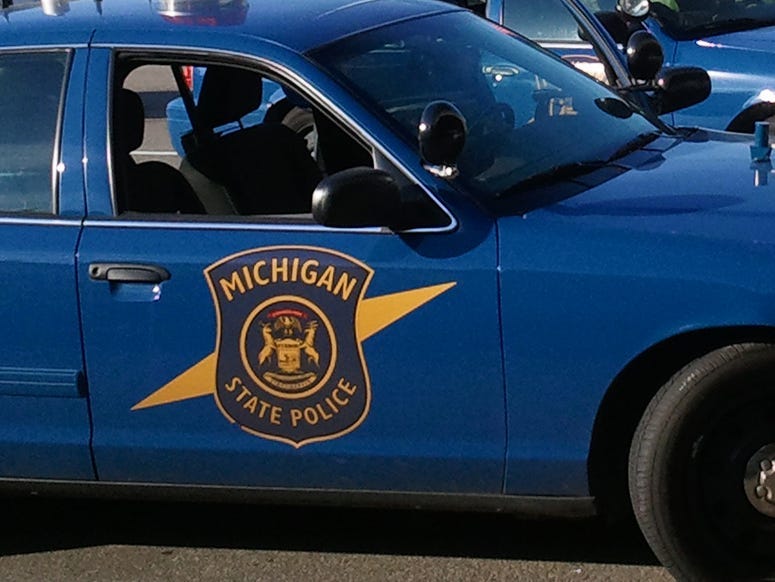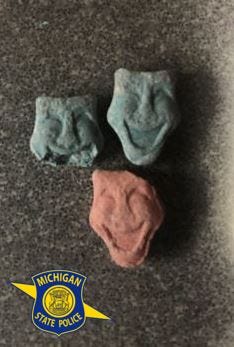
(WWJ) The Michigan State Police are warning parents about dangerous, illegal drugs with big happy faces.
Sharing a photo on social media on Tuesday, the MSP Seventh District wrote:
"Parents beware! A trooper in northern Michigan seized suspected Ecstasy from a Cincinnati man during a traffic stop. Ecstasy can be manufactured in many different shapes, sizes & colors."

These particular drugs were shaped like what's known as a Greek comedy or theater mask, blue and pink in color, with big eyes a wide smile.
Police did not say exactly where the drugs were seized. The MSP Seventh District covers the Northern Lower Peninsula, including Cadillac, Gaylord, Houghton Lake and Alpena.
According to the Oakland County Health Department, ecstasy or MDMA also popularly known more recently as "Molly," is a synthetic, psychoactive drug that is similar to both the stimulant amphetamine and the hallucinogen mescaline. "Molly" (slang for "molecular") refers to the pure crystalline powder form of MDMA. MDMA is popular in the nightclub scene or at raves because of its energizing effect and enhancing of the senses.
Others names for MDMA can include: Adam, Beans, Clarity, Disco Biscuit, E, Ecstasy, Eve, Go, Hug Drug, Lover's Speed, Peace, STP, X, XTC, among others.
The health department says MDMA is taken orally, as a capsule or tablet, and can be sold with logos, creating brand names for users to seek out. The colorful pills are often hidden among colorful candies.
Sometimes it is crushed and snorted, or smoked, but rarely injected. Effects last approximately 3 to 6 hours. It is not uncommon for users to take a second dose of the drug as the effects of the first dose begin to fade. Users may mix MDMA with other substances, such as alcohol and marijuana.
The health department warns that MDMA use may increase the risk of long term, or even permanent, problems with memory and learning.
Symptoms of an MDMA overdose can include high blood pressure, faintness, panic attacks, loss of consciousness or seizures.
Parents are urged to talk to their children about the dangers of using MDMA, supervise their child's activities, monitor their child's spending, where their children spend their time and their surroundings for drug paraphernalia or evidence of drug use.
MDMA is a Schedule 1 drug under the Controlled Substances Act,
For more on the health effects associated with MDMA, resources and more details. HERE.

